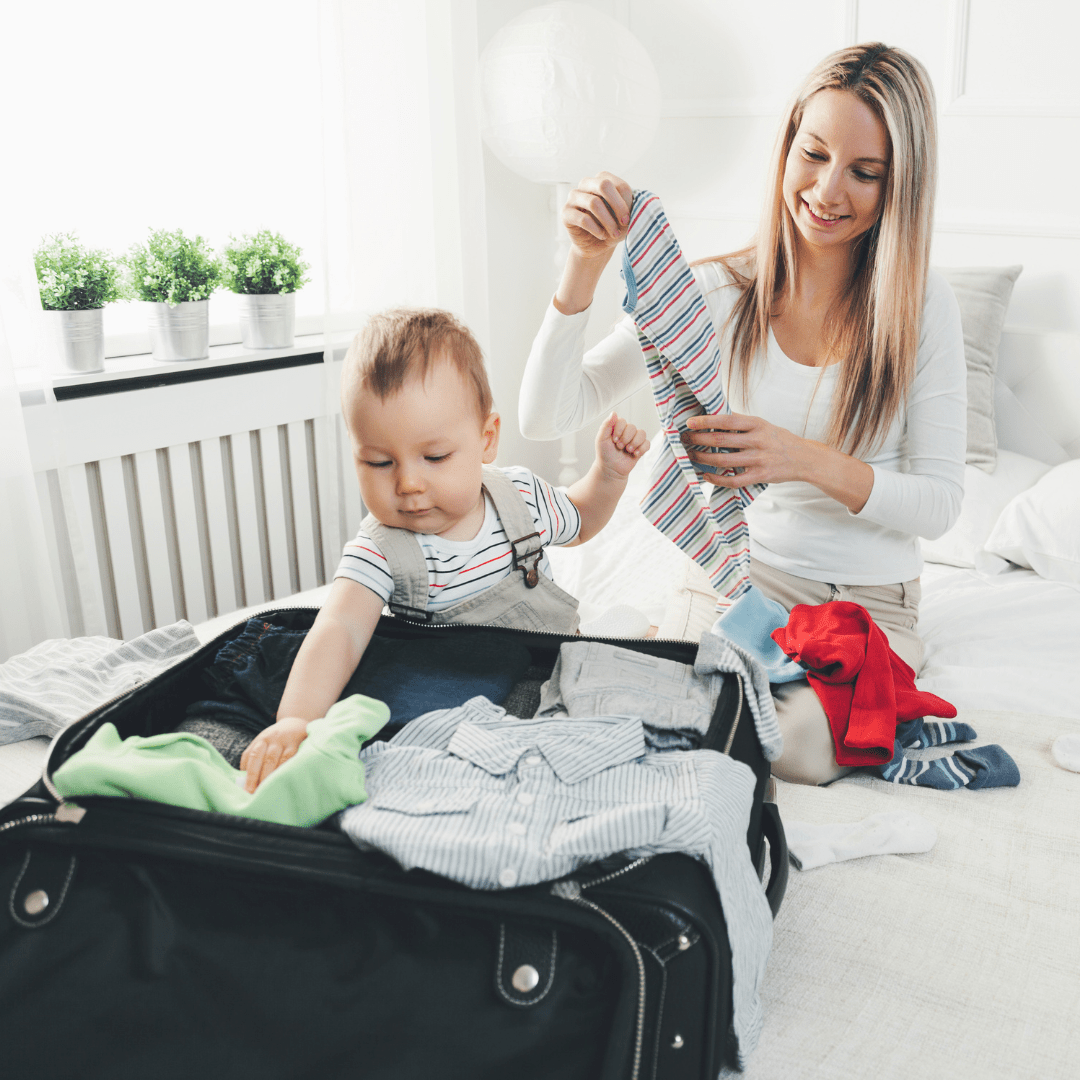Your Cart is Empty
Gift Sets
Categories

5 Impactful Changes Parents Can Make for a Greener Future
by Adrian Ma April 29, 2025 3 min read
Being a parent is a full-time adventure, and these days, many of us want to make sure that the world our kids grow up in is a healthy, happy place. But let’s be honest—going green can sometimes feel overwhelming. The good news? You don’t need to make huge changes overnight. Small, simple steps can add up to a big impact over time.
1. Start with What Your Baby Wears
When it comes to baby clothes, not all organic cotton is created equal. Some brands claim “organic” but don’t meet strict environmental or social standards. That’s why it’s important to look for certifications like GOTS (Global Organic Textile Standard), which guarantees that the cotton is grown without harmful pesticides and processed in an eco-friendly, socially responsible way. At The Wee Bean, all our baby and children’s clothing are GOTS certified, so you can trust that they’re safe for your little one’s sensitive skin and better for the planet.

2. Rethink Disposable Items
Babies come with a lot of disposable products, from diapers to wipes and bibs. While some disposables are hard to avoid, there are practical ways to reduce waste. For example, switching to reusable cloth bibs instead of single-use paper or plastic ones can reduce trash and save money. You can also use washable cloth wipes or damp cloths for quick clean-ups. These small swaps are easy to incorporate into your daily routine and make a noticeable difference over time.
3. Laundry Tips to Care for Clothes and the Planet
Washing baby clothes might seem straightforward, but a few simple changes can save energy and extend the life of those tiny outfits. Try washing on lower temperatures—many stains come out just as well in cold or warm water—and use eco-friendly detergents free from harsh chemicals. Also, avoid overwashing; sometimes, airing clothes out or spot-cleaning can do the trick. These habits help reduce your environmental footprint and keep your baby’s clothes looking and feeling great longer.

4. Pass It On
Kids grow fast, and so do their wardrobes! Instead of tossing out clothes when they’re outgrown, consider donating or swapping with other parents. This not only extends the life of garments but also builds a sense of community and sharing. That's why we focus on making heirloom-quality items that are designed to last. These durable, timeless pieces can be passed down or shared, reducing waste and promoting sustainable parenting habits. By choosing quality over quantity, we can create a more eco-friendly future for our children while instilling values of resourcefulness and generosity.
5. Teach Little Eco-Heroes
Getting your kids involved in green habits early on makes a huge difference. Whether it’s helping with recycling, watering plants, or learning about where their clothes come from, these little lessons plant seeds for a sustainable future.
Small Changes, Big Impact
Remember, you don’t have to be perfect. Every small choice counts—from picking sustainable textiles to washing smarter and reusing more. Together, these steps create a healthier planet for our children to explore and enjoy.
At The Wee Bean, we’re all about supporting families on this journey with thoughtful, organic baby and kids' wear designed to be gentle on skin and the environment. Because when we care for our little beans, we’re caring for the world they’ll grow up in.
----------------------------------------------
🌿 Frequently Asked Questions: Eco-Friendly Parenting Tips
1. What are some simple eco-friendly habits parents can adopt at home?
Parents can start by using reusable shopping bags, opting for cloth diapers, making homemade baby food, and choosing eco-friendly cleaning products. These small changes reduce waste and promote a sustainable lifestyle.
2. How can I teach my children about sustainability?
Involve your kids in activities like recycling, composting, and gardening. Reading books about the environment and discussing the importance of conservation can also instill eco-conscious values.
3. Are there eco-friendly alternatives to common baby products?
Yes, consider using bamboo or organic cotton clothing, wooden toys, and reusable food pouches. These products are sustainable and often safer for your child.
4. How does eco-friendly parenting benefit the environment?
By reducing reliance on single-use items and choosing sustainable products, eco-friendly parenting minimizes environmental impact, conserves resources, and sets a positive example for future generations.
Leave a comment
Comments will be approved before showing up.
Also in Latest Blog Posts

Navigating Holiday Travel with a Baby: Your Complete Guide to a Stress-Free, Joy-Filled Journey
by Adrian Ma December 09, 2025 6 min read
Holiday travel with a baby can feel like stepping into a live reality show, one part adventure, one part uncertainty, and a whole lot of planning. Whether you’re hopping on a long-haul flight to see family or doing a quick getaway to recharge, traveling with little ones during peak holiday season doesn’t have to turn into chao
Recently viewed products
Sign up to get 15% OFF your first order
Sign up to get the latest on sales, new releases and more …



